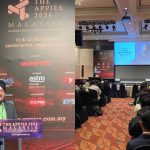By The Malketeer
MCMC to Conduct Proof-of-Concept Study on LG U+’s Findings
In an effort to address the ongoing issue of poor internet coverage in buildings, Malaysia is looking toward South Korea’s successful use of innovative spectrum and frequency solutions.
Communications Minister Fahmi Fadzil revealed plans to study and potentially adopt this model in Malaysia, following discussions with South Korean mobile network operator LG U+.
A Proven Solution in South Korea
South Korea faced a similar issue before, where buildings and densely packed areas experienced weak internet signals.
The breakthrough came when LG U+ implemented a method of using one frequency per spectrum.
The effectiveness of this strategy was highlighted in Fahmi’s discussions with LG U+ Executive Vice-President Johan Sue-hyun Chung during his working visit to South Korea.
According to Fahmi, this approach has proven to be effective in enhancing coverage, particularly in challenging environments like high-rise buildings.
MCMC to Lead the Exploration
Fahmi has tasked the Malaysian Communications and Multimedia Commission (MCMC) with conducting a proof-of-concept study based on LG U+’s findings.
He is optimistic that this model could hold the key to resolving Malaysia’s ongoing connectivity challenges.
The MCMC will assess how the spectrum and frequency strategy can be adapted to Malaysia’s specific infrastructure needs.
Collaboration with Local Telcos
Beyond internet coverage, the visit has opened doors for potential collaborations in 5G implementation, particularly in the industrial and enterprise sectors.
LG U+ and Malaysian telco giant Telekom Malaysia have been asked to explore partnerships that could further strengthen Malaysia’s 5G network capabilities.
Maxis CEO Goh Seow Eng was also present during Fahmi’s discussions with LG U+, signaling strong industry interest in improving the country’s digital infrastructure.
A Broader Vision for Digital Progress
Fahmi’s South Korean visit extends beyond internet solutions.
As part of his trip, he is also set to deliver a keynote at the GSMA Mobile 360 APAC conference, where he will explore collaboration opportunities in sectors like the film industry.
These initiatives highlight Malaysia’s commitment to strengthening its digital economy by learning from countries at the forefront of technology.
As Malaysia looks to the future of its digital transformation, adopting South Korea’s innovative approach could be a major step forward.
If successful, the application of different spectrums and frequencies may not only solve internet coverage issues but also boost Malaysia’s 5G network capabilities, positioning the country as a regional leader in digital infrastructure.
MARKETING Magazine is not responsible for the content of external sites.
An afternoon of conversations we never had, with leaders most of you never met.
Discover what’s possible from those who made it possible. Plus a preview of The HAM Agency Rankings REPORT 2024.
Limited seats: [email protected]
BOOK SEATS NOW









